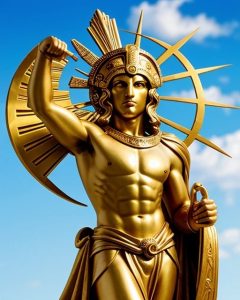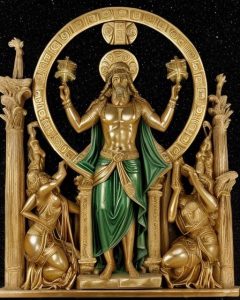When we think of the Vikings, images of roaring longships and fearsome warriors often dominate our imagination. Yet behind the famous horned helmets (a myth themselves) lies a less-told story of Viking women whose influence shaped their society as warriors, artists, and leaders. These women were more than homemakers; they were a dynamic force in one of history’s most fascinating eras, contributing to its legacy in ways that are only now being fully understood.
Contrary to early misconceptions, Viking women were not confined to domestic duties. Some of them fought alongside men, defending their homes or raiding foreign shores. One of the most compelling pieces of evidence comes from a 10th-century grave in Birka, Sweden, where the remains of a female warrior were discovered buried with weapons and a strategic board game, signifying her role as a military leader. The discovery stunned the academic world, proving that women held positions of power in Viking warfare. Shieldmaidens, once thought to be mere legends of sagas, were real and active participants in battles.
But the influence of Viking women extended far beyond the battlefield. They were also creators, driving cultural and artistic innovation. Women were the primary weavers and textile makers, creating intricate patterns and garments that not only clothed their families but also served as valuable trade goods. Jewelry, brooches, and other artifacts showcase the skilled craftsmanship of female artisans who embedded meaning and artistry into their work. Their influence was also felt in storytelling and oral traditions. Many sagas and poems were passed down through women, who acted as keepers of their community’s history and mythology. Without their efforts, much of Norse culture might have been lost to time.
Leadership was another realm where Viking women excelled. Unlike women in many other contemporary societies, Viking women could own property, divorce their husbands, and wield significant authority within their households and communities. Figures like Aud the Deep-Minded, who led a group of settlers to Iceland after her husband’s death, highlight the resourcefulness and determination of these leaders. Religious roles also fell into women’s hands, particularly as volvas or seeresses. These spiritual leaders were revered for their ability to connect with the divine and guide their people.
Today, the unsung power of Viking women is finally receiving the recognition it deserves. Advances in archaeology, such as DNA analysis, have overturned outdated assumptions, bringing to light the vital roles women played in Viking society. These women were not just bystanders but active participants in shaping the Viking Age. Their resilience, creativity, and leadership have left an enduring legacy, inspiring us to view history through a broader lens.
The stories of Viking women remind us that strength comes in many forms—whether on the battlefield, in the weaving room, or through acts of courage and leadership. They were warriors, artists, and leaders whose impact resonates across centuries, urging us to celebrate their contributions and acknowledge their rightful place in history.





































